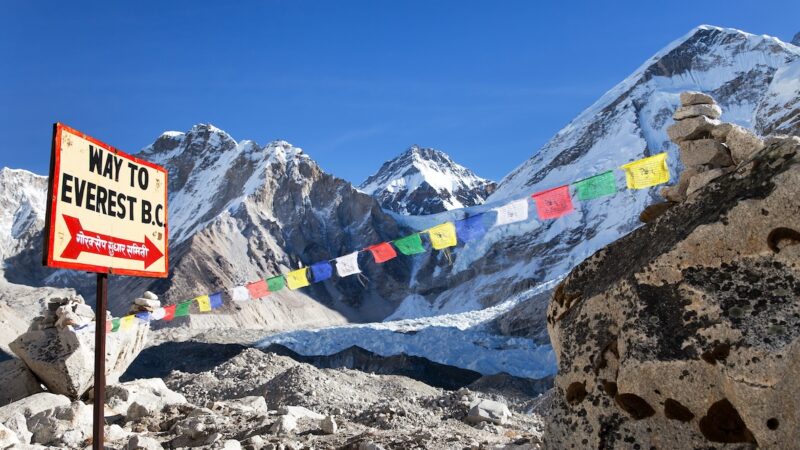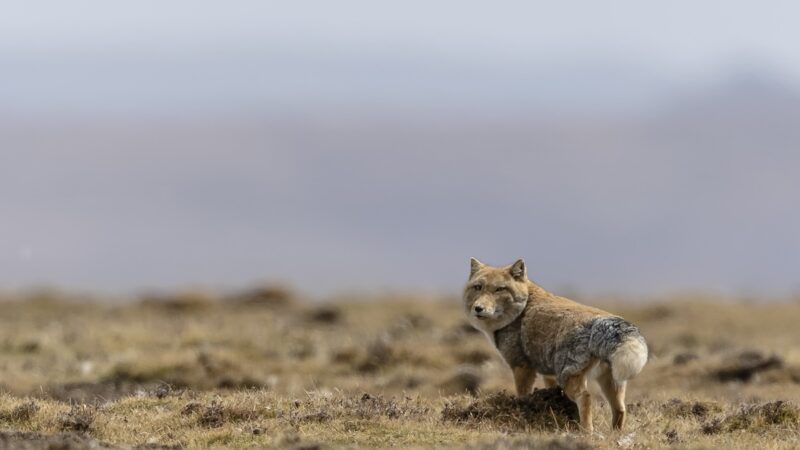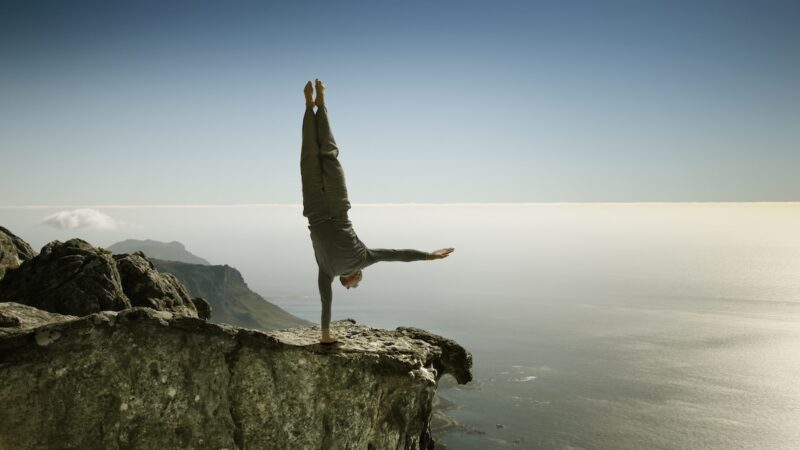Team Camp or Team Glamp? Glamping Is Trending, Here’s Why
According to the 2023 North American Camping & Outdoor Hospitality Report from Kampgrounds of America (KOA), an estimated 10.5 million households went glamping in 2022, showing a significant increase from the 7.7 million in 2020. On the rise, glamping will have an estimated compound annual growth rate (CAGR) of 14.7% from 2022 to 2027.
Are you team camp or team glamp? Let’s dig into the latest glamping trends.
What Is Glamping?
Glamping is glorified camping. It serves as a bridge between traditional tent camping and other accommodations like a hotel or a rented home. Amenities differ but are always at least a step up from tent camping, often including running water, kitchens, personal bathrooms, and electricity.
“Glamping, as its name implies, is designed to be a more comfortable (and convenient) experience that still allows you and your family to experience and connect with nature,” said Christina Christian, owner and founder of The Colorado Retreat Co.
The term “glamping” began to gain momentum in Europe, especially the U.K., in 2007. Social media influence has helped the growth of glamping vacations as influencers showcase and highlight destination spots and the benefits of glamping. Multi-day music festivals, destination weddings, and close-to-home travel have also helped build the momentum. With its ever-increasing popularity, the word glamping was added to the Oxford English Dictionary in 2016.
Why Do People Glamp?
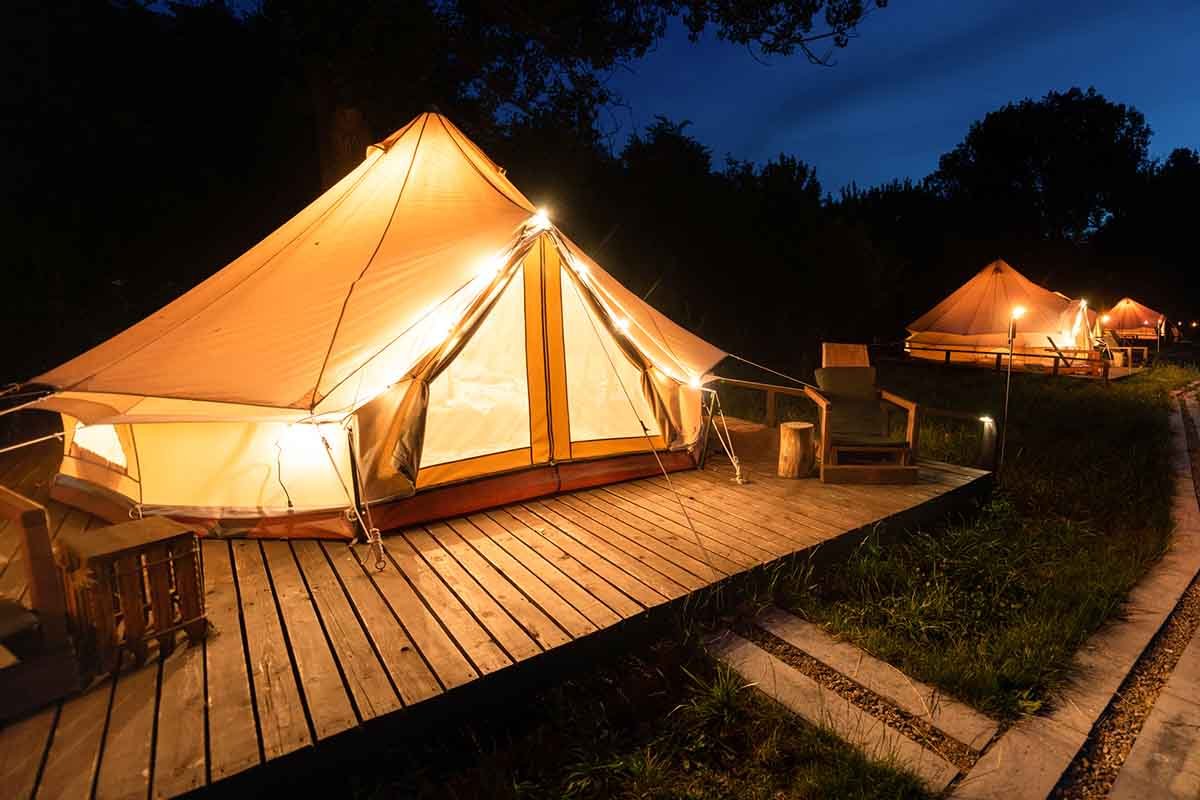
People choose glamping over traditional camping for various reasons. This type of travel offers the ability to relax in a way that’s more like “home” while still experiencing nature. Risks from wildlife, bad weather, and just a general lack of experience in the outdoors, are mitigated. In short, glamping offers quick access to nature outside the door, but in a much more controlled environment.
“Camping has many barriers to entry. Not only must one have all the gear, they also need a relatively deep knowledge of the outdoors. Glamping offers those new to sleeping outdoors the opportunity to test the waters and decide if camping is right for them without purchasing all the equipment,” said Breanne Kiefner, founder and experience designer of Root Adventures.
Trends in Glamping
With an increase of travelers choosing glamping for accommodations over the past several years, some trends have emerged, and glamping businesses are listening to their audience.
Domes
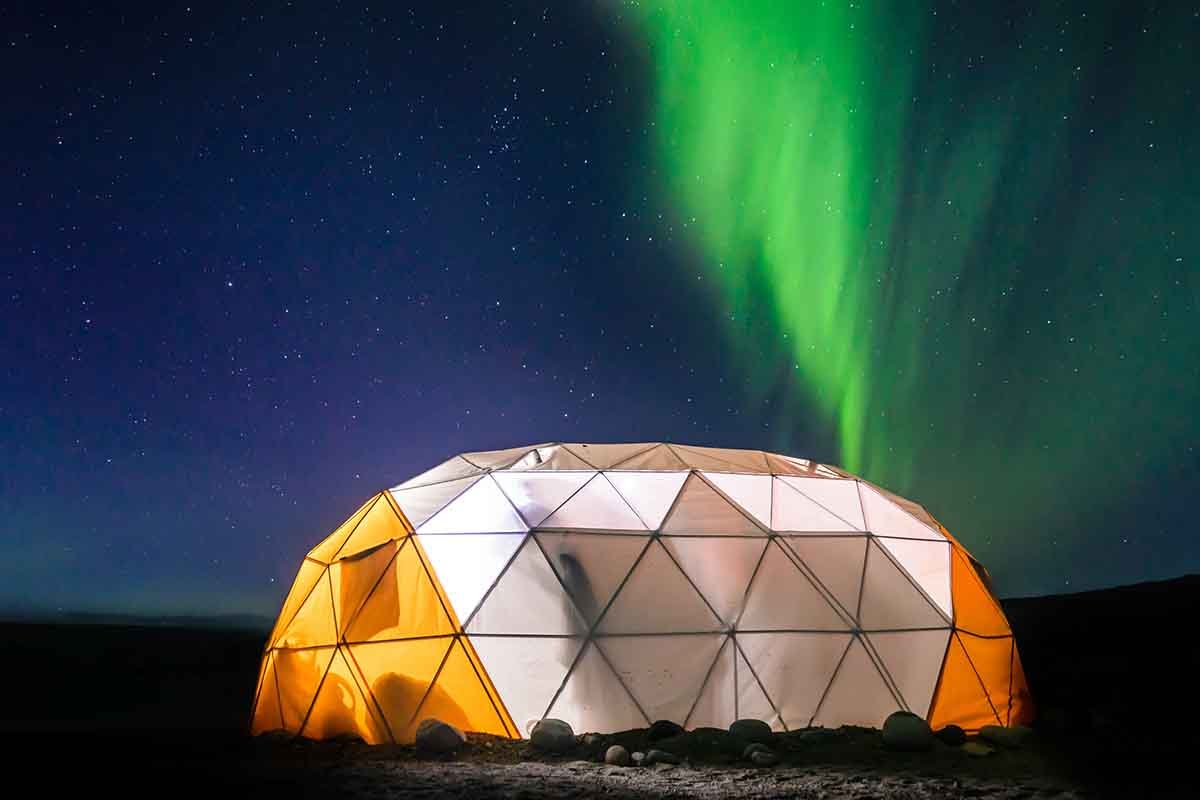
When glamping first started becoming a thing, the most traditional options were accommodations like bell tents and yurts. More recently, domes are trending for practical and aesthetic reasons. From an engineering perspective, domes have superior durability and strength. They are more energy efficient than other tent shapes, maintaining heat and increasing air circulation.
The temperature inside a dome can be regulated, while the shape allows for more liveable space. Minimal flat surfaces make domes resistant to rain, wind, and snow, making it possible to keep them up year-round.
Domes come with a higher return on investment (ROI) for businesses, with less need for maintenance and costs in the long term. The dome formfactor also offers aesthetics—architectural beauty that draws people in with intrigue and comfort, which is exactly what glampers are looking for.
Sustainability
Glamping, compared to traditional accommodations, encourages greener practices and helps more people enjoy the outdoors. Glamping companies often lean into this, promoting environmental responsibility and even creating partnerships with suppliers of sustainable products used to build and maintain their accommodations—from solar power to composting toilets.
Sustainability is what glampers want, with 71% of travelers saying they want to make more of an effort to travel sustainably in a Booking.com report. Many glamping locations are even taking the initiative to be certified by organizations like the American Glamping Association, Green America, TripAdvisor, or 1% for the Planet. Part of the importance in certification is supporting these entities’ efforts to educate the public about the environment.
Accessibility
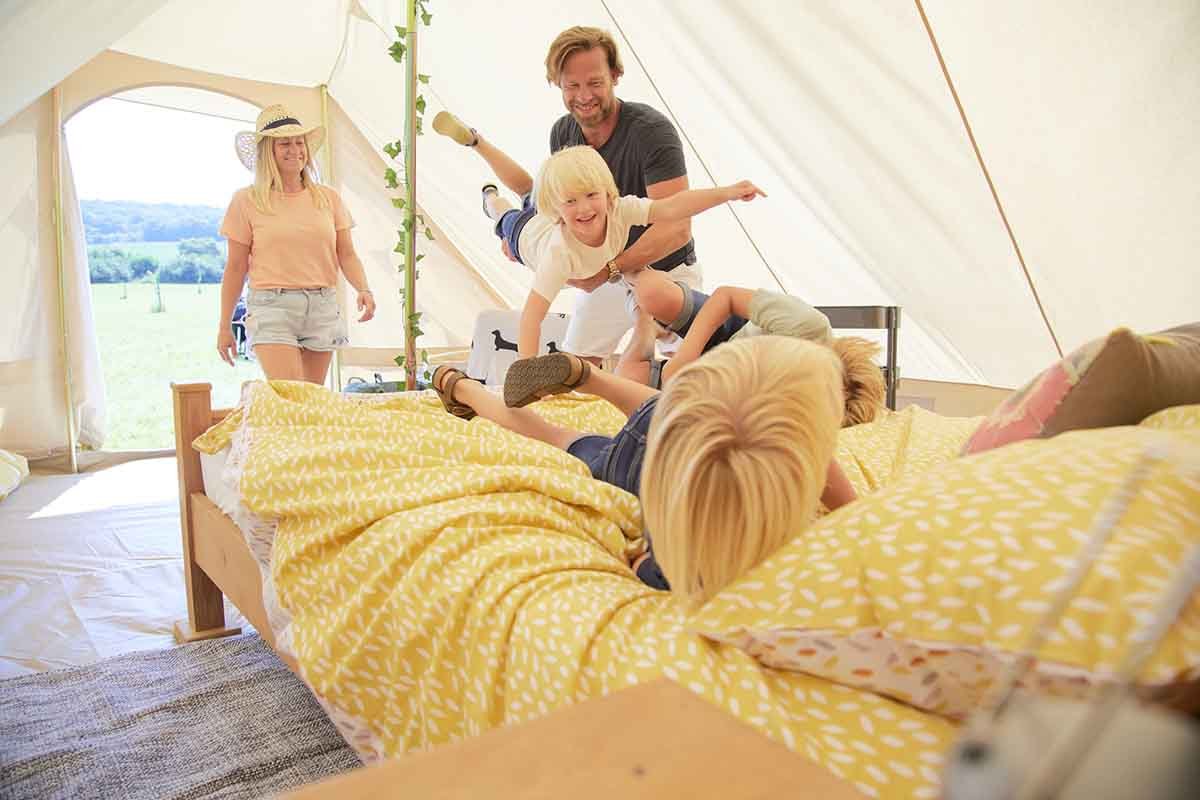
More opportunities are opening up for glampers of all ages, abilities, and backgrounds. “When glamping first made its debut, the experience was all about luxury, greatly limiting accessibility,” said Kiefner. “Today, you can find all levels of glamping, which is ideal, because glamping offers so many opportunities for community building and a safe way to commune with nature.”
Wheelchair-accessible sleeping quarters with ramps and ample space, neurodiverse nature trails and access to power for needed medical supplies create a more inclusive way to experience the outdoors.
“Glamping offers an intermediary option; we can be deep in nature, sleep in a comfortable bed, connect CPAP machines, and enjoy accessibility for all bodies,” said Kiefner.
Location, Location, Location
While in its earlier days, glamping was more of a chance to get away from it all, America Outdoors suggests a more current trend is less “off the grid”, and glampers just want opportunities for outdoor recreation to be close by.
Places of historical interest are also popular among glampers, as are glamping opportunities near culinary and other immersive cultural experiences. Chances to volunteer or participate in location-specific outdoor experiences also draw glampers, according to the 2023 KOA Hospitality Report.
Types of Glamping Travelers
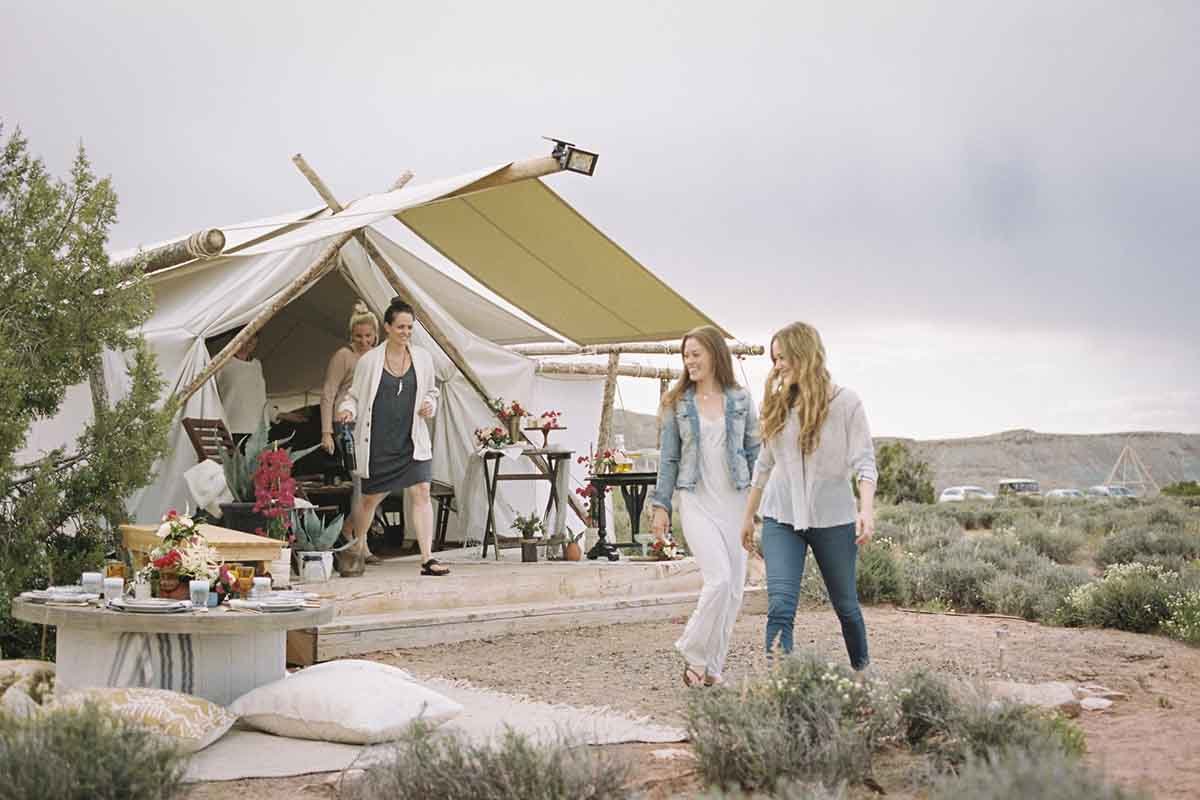
While Millennials and Generation Z make up the majority of glampers, glamping-like accommodations are becoming more popular for multigenerational travel. According to an American Express survey, 79% of travelers felt that multigenerational travel and family reunions are perfect opportunities to reconnect with family. Glamping offers large and/or multigenerational groups the ability to access nature while accommodating those who might not be interested in “roughing it.”
Those who, in the past, felt disconnected from nature because of limited access and other barriers are another growing segment of glamping travelers.
“I think COVID inspired a lot of people in cities and urban areas to seek out connectivity with nature,” said Christian. “There’s a big mental leap—and investment—in going directly into a traditional camping experience, and I think glamping is the bridge people are seeking.”
Amenities
As glamping becomes more inclusive, amenities continue to change. Glampers looking for an unplugged experience can still find those off-the-grid gems. Most glamping accommodations offer some popular comforts, like communal Wi-Fi in gathering spaces, which offers a good option for those seeking some connectivity but not as much as they usually have.
Instagram-worthy glamping scenes may vary—from beautiful gardens and starry-sky nights by a firepit to personal chefs serving dinner in front of Ansel Adams-worthy backdrops. According to the KOA survey, respondents glamp “because they want an outdoor experience without actually having to go camping.” Respondents want Wi-Fi, kitchens, bathrooms, and pools, the survey found.
Not all amenities are for luxury or comfort. “Amenities” can also blur into the realm of accessibility when glamping accommodations keep a diverse crowd in mind, for instance, by providing paved paths for easy access and electricity for guests with medical devices.
Glamping Staycations
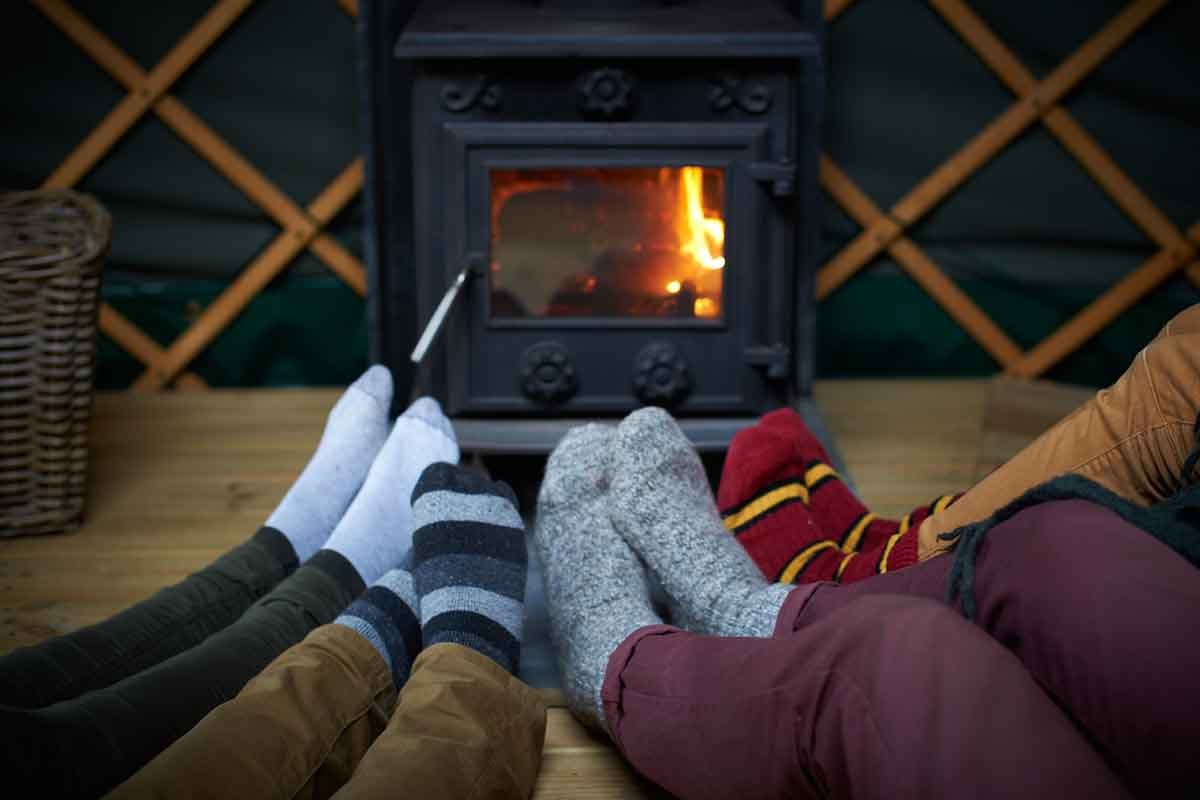
Since the COVID-19 pandemic, staycations have been on the rise by offering the chance to explore close to home, and this has impacted the glamping sector. Closer-to-home travel is also booming thanks to the increased cost of living in many places. It’s possible that what’s fueling the glamping business has changed, from seeking off-the-grid luxury to seeking a respite from the everyday without spending a fortune.
The Global Wellness Institute found that travelers do not want to completely disconnect or travel far distances for unique experiences. During the pandemic, my daughter and I sought a safer and more outdoorsy experience for a getaway by glamping on a farm, Wily Carrot, which overlooks Sleeping Ute Mountain in Colorado.
Wellness Retreats
COVID changed travel a lot, including by creating a surge in people interested in wellness retreats. In the U.S., wellness travel accounted for 19% of the global market in 2020, according to the Global Wellness Institute.
Vacation has always been seen as a way to escape stress and improve physical and mental health, grow friendship and family bonds, and experience different places. Now more than ever, glamping sites are adapting to customers’ desire for wellness by adding things like onsite yoga classes, access to local produce, couples massages, and wellness treatments.
If you’re looking to access the outdoors without breaking the bank or having to sleep on the ground, glamping could be for you. Bask in a little bit of luxury as you explore local recreational opportunities or connect with family and friends on a deeper level. Whatever level of luxury you require to get out into nature, there’s a glamping accommodation that’ll check all your boxes.
Source: https://outdoors.com/glamping-is-trending-heres-why/

